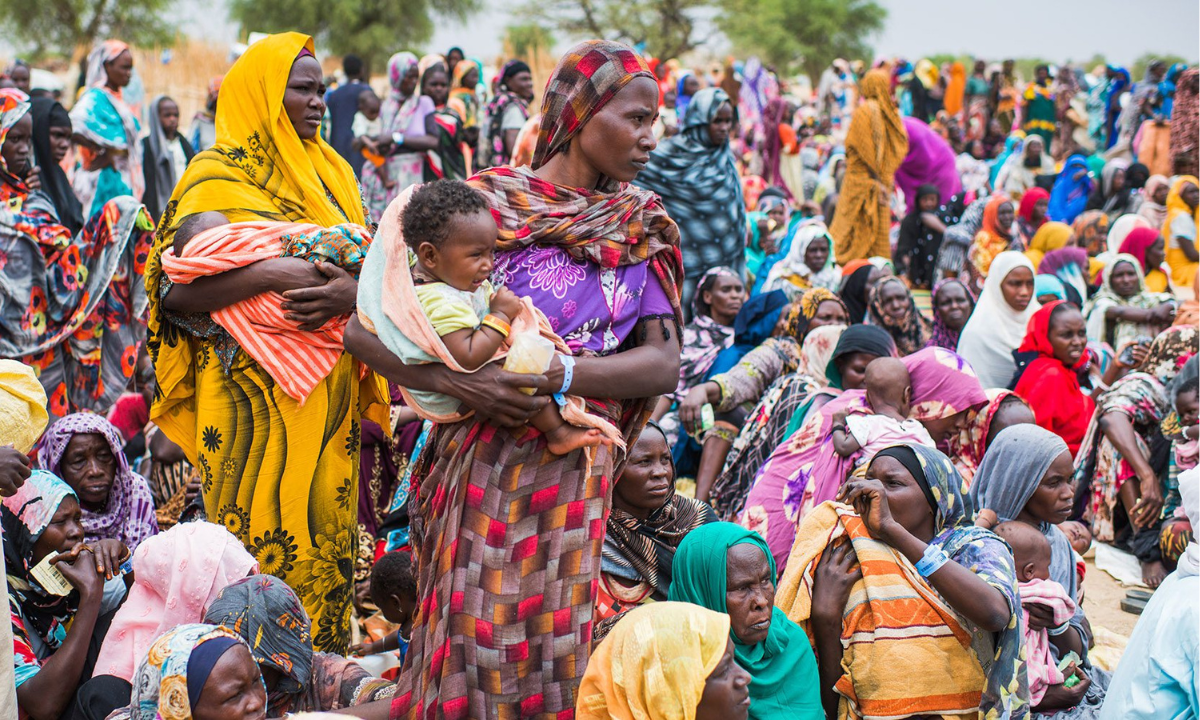Op-Ed: How USAID cuts are starving Sudanese refugees in Chad

As I walked through the sprawling refugee camps in Chad, where nearly one million displaced people seek refuge from conflict, I was struck by the apocalyptic scale of human suffering.
A 35-year-old mother named Khadija told me she had walked for five days to escape the war in Sudan, only to find herself in a camp where food distributions had already been reduced to a trickle. Three of her five children survived the journey. Each night, they wake up screaming, haunted by memories of violence.
For years, the United States has been the largest humanitarian donor in the world. However, as global needs have surged, aid agencies have struggled to keep up with rising demand.
The recent USAID freeze did not create this crisis, but it threatens to push it over the edge.
Humanitarian operations in Chad were already stretched thin, fighting to sustain underfunded programs. With one of the largest funding sources frozen, the situation risks spiralling into catastrophe.
The U.S. contributes about 40 per cent of global humanitarian aid, with USAID facilitating food assistance, medical care, and refugee relief worldwide. But the funding gap is growing at an alarming rate.
Today, more than 360 million people worldwide require humanitarian assistance—a staggering jump from just 61 million in 2010. In Chad, these resources were already inadequate to meet soaring needs.
A UN appeal for $1.5 billion to assist Sudanese refugees is only 27 per cent funded—a stark indicator of how fragile the safety net has become. As aid organizations are forced to scale back, families must make impossible choices: ration food, forgo medical care, or undertake perilous journeys elsewhere in search of survival.
Food insecurity has reached catastrophic levels. I witnessed firsthand how the lines for food distribution stretched endlessly, only for many to be turned away as supplies ran out.
In Adré camp, one of the largest refugee settlements along the Chad-Sudan border, mothers told me that their rations had been slashed from two meals a day to just one. “My children go to bed hungry,” one woman whispered, ashamed that she had nothing left to give them.
Healthcare is another casualty of the aid freeze. In the Farchana camp, a single clinic must serve thousands. Without funding, life-saving medications are vanishing.
When I visited a medical centre, I saw parents clutching feverish children, desperate for treatment that no longer exists. Immunization programs have been halted. Pregnant women are giving birth without medical care. Diseases that should be preventable—malaria, cholera, severe malnutrition—are now claiming lives at an alarming rate.
The crisis in Chad is just one example of how reckless policy decisions can upend lives. The U.S. foreign aid freeze is not an isolated move but part of a broader retreat from the humanitarian imperative.
From Ukraine, where war has displaced millions, to Ethiopia, Jordan, Egypt, and Sudan—countries already struggling to host vast refugee populations—critical funding streams have been disrupted. These nations, which have long shouldered the burden of sheltering displaced communities, now face an even greater strain as financial lifelines are severed.
The real danger is not just the immediate fallout but the precedent this sets. The U.S. is not just pulling back; it is signalling to other donor nations that humanitarian aid is expendable. If global powers follow suit, either due to direct pressure or shifting political priorities, we risk a catastrophic domino effect—one that would leave millions of refugees abandoned, host nations overwhelmed, and entire regions destabilized.
Humanitarian organizations depend on predictable funding to operate. When aid is suddenly cut off, programs collapse.
In Chad, I met with aid workers who had to turn away families seeking immunizations because funding disappeared overnight. These are not just bureaucratic inconveniences—they are life-and-death decisions.
Yes, there are legitimate concerns about how aid is administered—and donor countries have every right to scrutinize inefficiencies. However, there are ways to reform and strengthen aid delivery without punishing the world’s most vulnerable people. The focus should be on improving oversight, reducing bureaucratic bottlenecks, and ensuring funds reach those who need them most—not withdrawing support entirely.
With the U.S. stepping back, the responsibility now falls on the global community to fill the void. This is not just about generosity but about ensuring that millions of displaced people are not left without food, shelter, and medical care. If donor nations do not step up, the consequences will be devastating. The failure to act will deepen suffering, strain already overwhelmed host countries, and push fragile communities further into crisis.
We have seen the consequences of inaction before, and history is clear: when the world turns its back on humanitarian commitments, it is not budgets that bear the burden—it is human lives.
As I left Farchana camp, I asked Khadija what she wanted the world to know. Her answer was simple:
“We are people. We deserve dignity. It is against our dignity to not have food. I want to see my children smile again—why should it be this hard?”
This is not just a plea from one mother—it echoes the voices of millions of refugees. They are not numbers, not statistics, but human beings whose futures depend on today’s choices. We cannot allow indifference to determine their fate.

